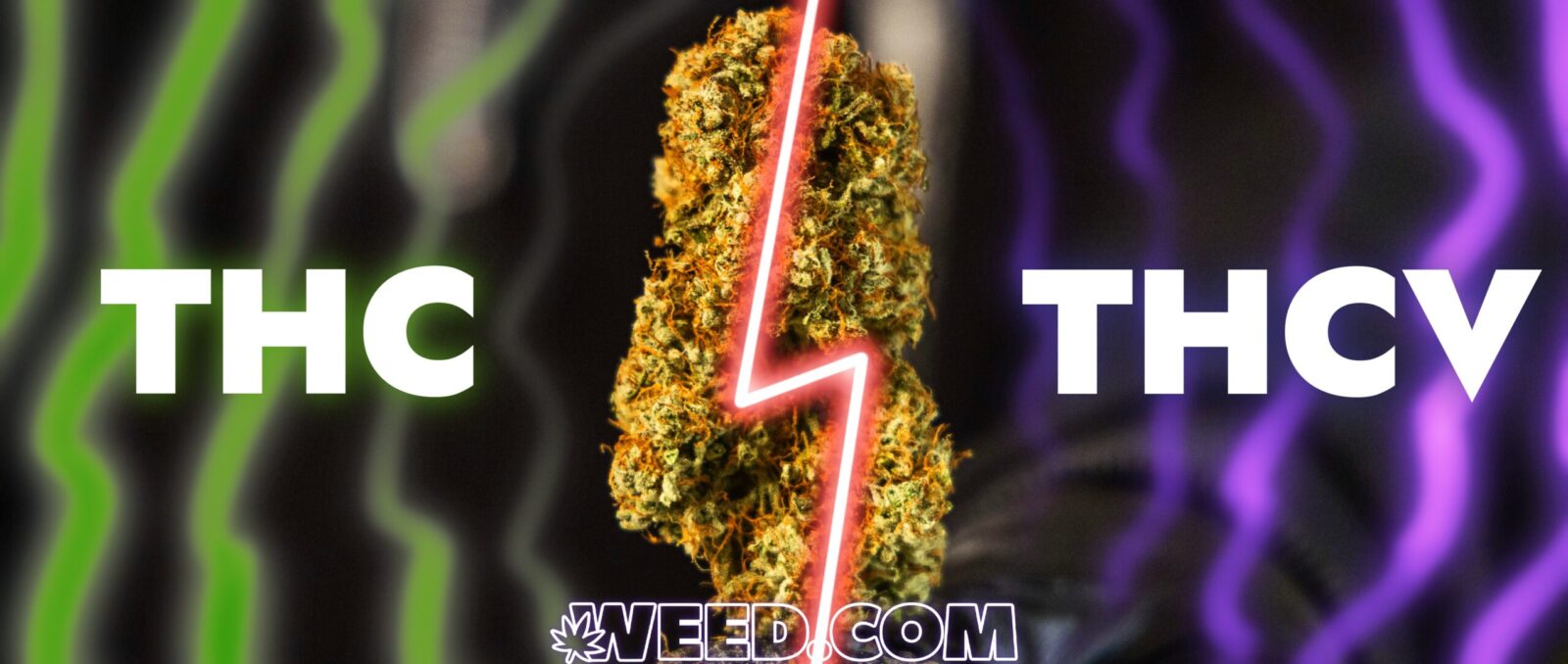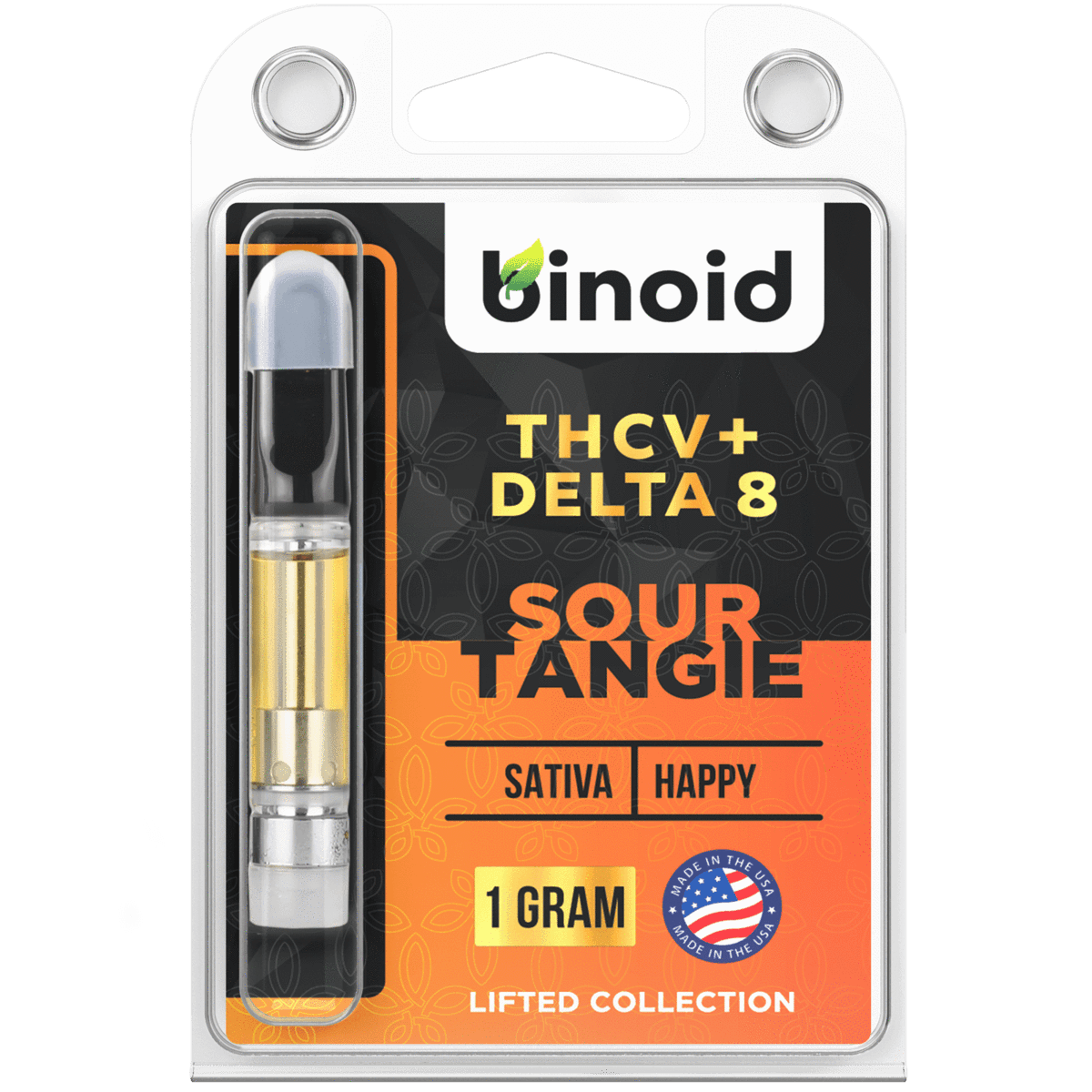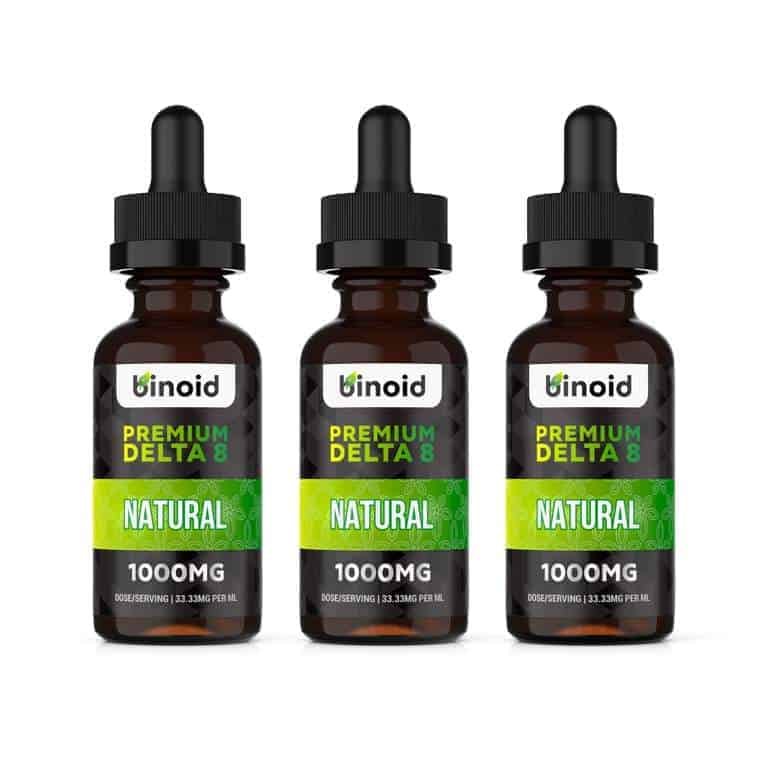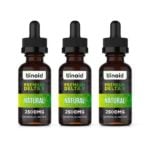
Key Differences between THC and THCV
In this article, we will explore the intricate characteristics of two prominent cannabinoids, THC (tetrahydrocannabinol) and THCV (tetrahydrocannabivarin). While both originate from the cannabis plant, they exhibit a myriad of varying effects, mechanisms of action, and potential benefits. This comprehensive article aims to provide an in-depth comparison between THC and THCV to enhance our understanding of their nuanced differences.
This post is intended as information and for general knowledge only. It is not a substitute for medical advice, diagnosis, or treatment. It is recommended that you talk to a healthcare professional about this before introducing cannabinoids into your daily routine (especially if you have been diagnosed with any medical conditions or are under any medication). It is not recommended to drive or operate any machinery when using cannabis- or hemp-derived products. Use responsibly!
What is THC:
Chemical Structure and Psychoactivity
THC’s chemical formula and structural arrangement highlight its psychoactive nature due to the shape that allows it to bind to cannabinoid receptors. This interaction between THC and the endocannabinoid system (ECS), specifically the CB1 receptors, leads to the sensation of being “high.” Such intoxicating effects are central to THC’s reputation, and it is commonly associated with the euphoric experiences sought by recreational users of marijuana.
Effects on Mood and Cognition
THC’s influence on mood and perception is primarily attributed to its impact on neurotransmitters like dopamine and serotonin. This can result in alterations in mood and sensory perceptions, contributing to the characteristic “high” experienced by users. However, cognitive functions such as memory, concentration, and coordination can be negatively affected by regular THC use.
What is THCV:
Cannabis Strains and Presence
THCV, a minor cannabinoid, is found in specific cannabis strains, particularly those native to regions like Africa and Asia. This cannabinoid’s presence in strains like Durban Poison and Red Congolese distinguishes it from THC and other more common cannabinoids. The concentration of THCV varies depending on factors like the strain’s genetic makeup and growing conditions.
Therapeutic Potential
While THCV is a relatively understudied cannabinoid, its potential therapeutic properties are gaining attention. Research suggests that THCV might play a role in appetite suppression, metabolism regulation, and even type 2 diabetes management. These potential benefits position THCV as an intriguing avenue for medical cannabis research and development.
Psychoactivity Distinction
Unlike THC, which is known for its psychoactive properties, THCV exhibits a unique profile. Some strains rich in THCV might offer mild psychoactive effects, but THCV can also act as an antagonist to THC’s psychoactivity. This means that THCV-rich strains could potentially offer a clear-headed and energetic experience while minimizing the traditional “high” associated with marijuana.

Chemical Structure and Properties:
Molecular Comparison
When examining the molecular structures of THC and THCV, their similarities and distinct arrangements of atoms become evident. These structural differences account for the varying effects of the two cannabinoids. While THC’s structure allows it to fully activate CB1 receptors, THCV’s structure might influence its affinity for these receptors and its overall impact on the ECS.
Psychoactive Effects and Differences:
THC’s Strong Psychoactivity
THC is renowned for its potent psychoactive effects, which alter sensory perceptions, induce euphoria, and promote relaxation. However, these effects can be accompanied by potential drawbacks such as anxiety, paranoia, and impaired cognitive function, especially at higher doses or in susceptible individuals.
THCV’s Psychoactive Profile
THCV’s potential as a mitigator of THC’s adverse effects is intriguing. Its potential antagonist properties at CB1 receptors could lead to unique experiences for users. Some anecdotal evidence suggests that THCV-rich strains might offer increased alertness and reduced anxiety, making them a potential choice for those seeking the benefits of cannabis without the typical intoxicating effect.
Medical Applications and Benefits:
THC’s Medical Uses
THC has established medical applications, including pain management, reducing nausea during chemotherapy, and stimulating appetite in conditions like wasting syndromes. However, concerns about its psychoactive effects and potential for addiction have led to careful consideration of its medical use.
THCV’s Potential Benefits
THCV’s effects on appetite suppression and metabolism regulation make it a candidate for weight management and even type 2 diabetes treatment. Additionally, preliminary research hints at potential neuroprotective effects and benefits for bone health. While these findings are promising, more research is needed to validate THCV’s therapeutic potential.
Potential Side Effects and Risks:
THC-Related Side Effects
THC consumption can lead to side effects such as anxiety, paranoia, short-term memory impairment, and motor skill impairment. These effects are influenced by factors like individual sensitivity, dosage, and consumption method. The line between therapeutic benefit and undesirable side effects can be thin with THC use.
THCV-Related Considerations
While research on THCV’s safety profile is limited, it’s important to consider potential side effects associated with its consumption. As with any cannabinoid, individual reactions might vary. The lack of comprehensive studies necessitates cautious exploration of THCV’s effects, especially at different doses.
Legal Status and Accessibility:
THC’s Legal Status
The legal status of THC-containing products varies globally. While some regions have embraced medical and even recreational use, others maintain strict prohibitions. The conflicting legal frameworks pose challenges for both users and the cannabis industry.
THCV’s Emerging Status
THCV’s potential for milder psychoactivity and distinct properties might influence its legal status differently from THC. As regulations evolve, THCV-containing products might carve out a unique niche in the market, appealing to those who seek cannabis benefits without the traditional “high.”
Research and Future Implications:
Current THC Research
Ongoing research continues to explore THC’s medical potential and efficacy. Studies span a range of conditions, from chronic pain management to addressing neurological disorders like multiple sclerosis and PTSD. Understanding THC’s effects and optimizing its use remain active areas of investigation.
THCV’s Unexplored Potential
Despite promising preliminary findings, THCV’s potential benefits are largely unexplored. As research grows, it might unlock new avenues for weight management, metabolic disorders, and alternativetreatment options. Comprehensive studies are needed to fully understand THCV’s capabilities and limitations.
Conclusion
As we delve into the intricate differences between THC and THCV, we gain a profound understanding of the complexity within the cannabis plant’s compounds. These variations in effects, mechanisms, and potential applications highlight the intricate interplay between cannabinoids and the human body’s physiology. With ongoing research and evolving perspectives, we may uncover novel ways to harness THC and THCV for diverse therapeutic purposes while respecting individual preferences and sensitivities.
Also Interesting:
















